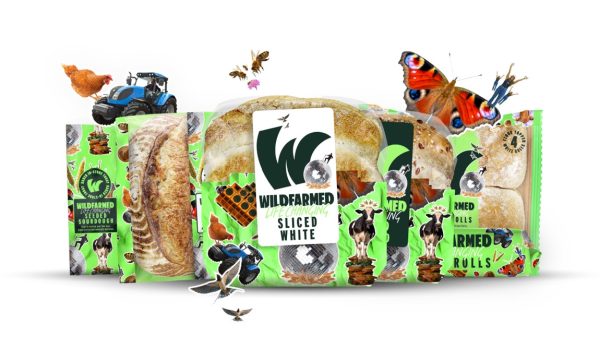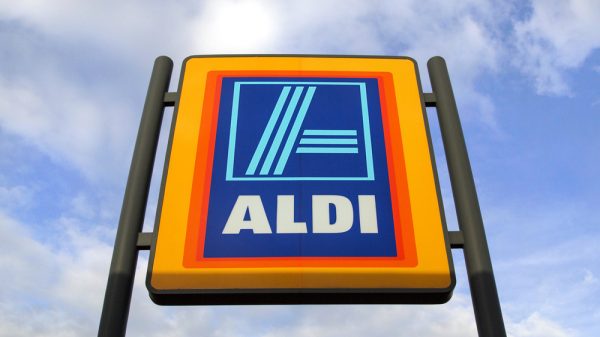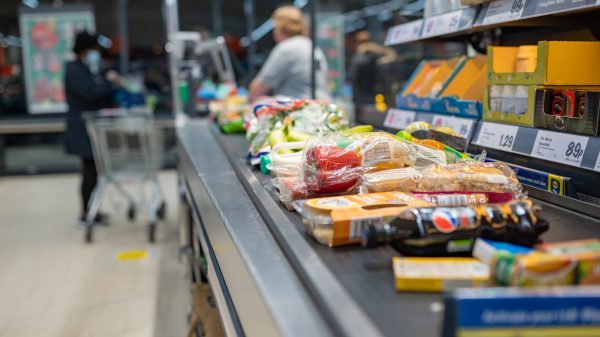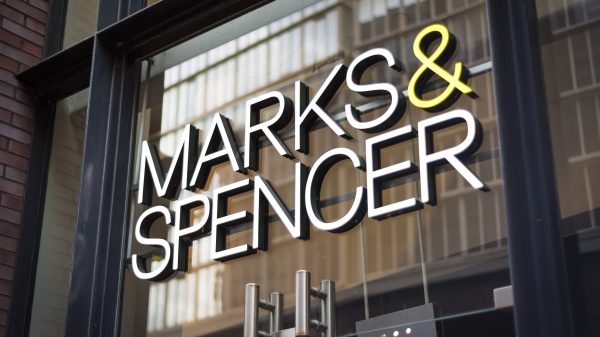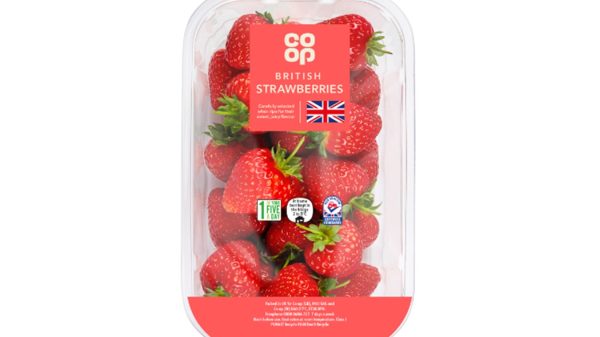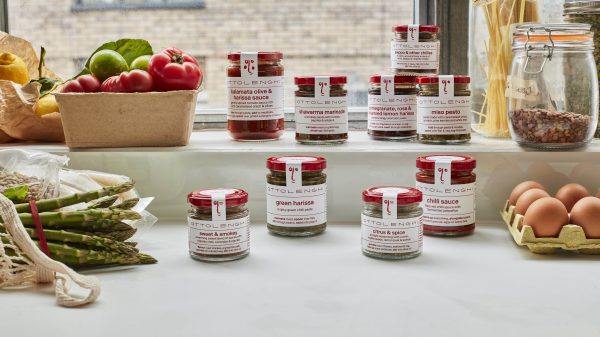The pandemic has caused a big shift in consumer behaviour, with almost half of UK consumers actively buy products from companies with strong environmental credentials, with that figure rising to 65% for Gen Z demographics.
As consumer purchasing decisions continue to be influenced by these ethical choices, supermarkets and brands have naturally shifted towards greener initiatives. According to a recent ‘Retail Revolution’ report, the green pound is currently estimated to be worth £122bn.
Earth Day – the annual event which highlights the importance of environmental protection – is held on 22 April each year and offers a prime opportunity for retailers to show off sustainability initiatives and push their brands as eco-friendly.
Grocery Gazette takes a look at some of the more innovative green pursuits supermarkets have embraced for Earth Day 2022.
Read more: Tesco drives supply chain to ditch 1.5 billion pieces of plastic
Earth Day 2022: Eliminating plastic
Over the last decade, the majority of supermarkets have made an effort to distance themselves from single-use plastic. Despite an uptake in recycling, studies have shown that only one-third of plastic food packaging used is recycled in the UK.
Unfortunately, most of that plastic ends up in oceans, affecting marine life and seabirds. It is estimated that by 2050, the oceans could contain more plastic than fish. A plastic bag takes around 100-300 years to decompose.
While the big 4 grocers and other supermarkets have taken steps towards reducing the amount of single-use plastic carrier bags, single-use plastic is still prevalent, especially in the fresh fruit and vegetable sections as grocers use plastic wrap, bags and other plastic materials to extend the shelf-life of their products.
Wrap chief executive Marcus Gover said, “While the packaging is important and often carries out a critical role to protect food, we have proven that plastic packaging doesn’t necessarily prolong the life of uncut fresh produce.”
Tesco and Asda have recently trialled Apeel, a protective coating made from the same materials found in peels, seeds and pulp. It still slows down the rate of spoilage for fresh produce but offers an environmentally-safe alternative to plastic.
Some supermarkets have also introduced refillable stations, an option that sees grocers sell unpackaged material such as pasta, rice and cereals, encouraging customers to bring their own packaging to purchase goods.
Last month, UK grocers including Morrisons, Waitrose, Ocado and M&S joined a refillable grocery partnership as they look to expand their unpackaged options in-store. These supermarkets form part of the Refill Coalition group, led by Unpackaged, a company that runs refill stations in stores including Planet Organic.
“If we can make refills more available and affordable for shoppers, I am in no doubt that this will become a commonplace way of shopping in the future across all retailers, in the UK and farther afield,” Unpackaged founder Catherin Conway told The Guardian.
Read more: Aldi launches green technology to its delivery fleet
Earth Day 2022: Carbon net-zero transport
Following on from COP26, businesses are racing ahead to try and become carbon-net zero and supermarkets are no different.
With Earth Day here, grocery stores will be eager to proclaim their environmental agreements, one which often includes a date prediction for when the company expects to be carbon neutral.
With electric vehicles now commercially available, supermarket companies have hopped onto the trend in a bid to cut their CO2 emissions.
Tesco recently became the first UK supermarket to use battery-powered delivery lorries following the successful trials of its two 37 tonne DAF lorries that transported food between Cardiff near Newport.
The big 4 grocer has stated that it now plans to make its home delivery service “fully electrified” by 2028.
It comes as no surprise that UK’s largest supermarket chain, which recently posted its pre-tax profits had tripled to over £2 billion this year, is leading the race ahead of the others in the race to become carbon neutral as they have the funds to do so.
Talking to the BBC, Cardiff University professor Liana Cipcigan said: “The replacement of diesel vehicles is coming, step by step. For the moment, electrification is the right solution and if these vehicles are charging from renewables we will have a better future for our children.”
Read more: Ocado scraps ‘best before’ label on fruit and veg
Earth Day 2022: Best before dates
In a bid to reduce food waste, grocers have started to remove ‘best before’ labels on some of their products because quite often, the product is still safe to eat.
Instead, supermarkets encourage their customers to make their own decisions upon whether a product is safe to be consumed or not.
In January, Morrisons became the first supermarket to remove ‘best before’ dates on its milk, which is one of the most wasted items. Instead, the grocer encouraged its customers to conduct a sniff test to check the quality of the milk instead of relying on an ‘arbitrary date’.
Similarly, Tesco, Ocado and Southern Co-op have all followed a similar path, removing ‘best before’ labels from a variety of their products, including yoghurt. The Food Standards Agency advises that a product past its ‘best before’ date is “safe to eat after this date, but may not be at its best.”
WRAP chief executive Marcus Gover added: “WRAP research showed that getting rid of best before dates on fresh fruit and veg can help reduce the amount of food we throw away from our homes by a staggering 50,000 tons a year.”
Read more: Tesco’s eco pledge ‘falls short’ as expose reveals ‘messy reality’ of plastic waste
Earth Day 2022: Recycling schemes
Major supermarkets have stepped up their recycling efforts, with a growing number of stores now accepting the full range of plastic packaging.
According to Defra figures, 43.7% of plastic packaging waste was recycled in 2020, which leaves 52.7% burned in incinerators or dumped into the environment.
In the last six months, supermarkets including Iceland, Tesco, Aldi and Morrisons have all launched new recycling schemes.
Sainsbury’s told Grocery Gazette that its recycling centres now “allow customers to recycle all flexible plastic packaging which is not commonly accepted for kerbside collection by local authorities, including common household items such as crisp packets, food pouches, salad bags, biscuit, and cake wrappers.”
According to ‘Which?’ all supermarkets plan to make their plastic packaging 100% reusable, recyclable or compostable by 2025 at the latest. An impressive 94% of Co-op’s own-brand plastic is already recyclable at home, while Ocado’s offering is only 40% recyclable.
“Until we have consistent and comprehensive household collections across the nations, supermarkets play a critical role to enable customers to recycle key items not collected at home,” Wrap strategic technical manager Helen Bird said.
“Supermarkets also have the advantage of reverse logistics. Trucks dropping food off at stores could leave full of recycling going back to the distribution centre for processing – that’s almost carbon-free transport, which is great.”
Read more: Aldi’s plant-based sales soar by 500%
Earth Day 2022: Plant-based diets
Plant-based foods have seen a momentous rise in popularity and sales over the last two years as consumers opt for a plant-based diet for ethical and environmental reasons.
Meat production requires a huge investment in energy, transport, water and significant land clearing, all of which negatively impact the environment. 57% of food gas emissions come from the production of animal-based foods (compared to 29% of plant-based foods).
Sainsbury’s has been one of the leading grocers in offering plant-based options. It initially launched its ‘Plant Pioneers’ range in 2019 and has continued to expand its range. Furthermore, the grocer price matched over 30 fresh fruit and vegetable product lines to Aldi as an incentive for customers.

